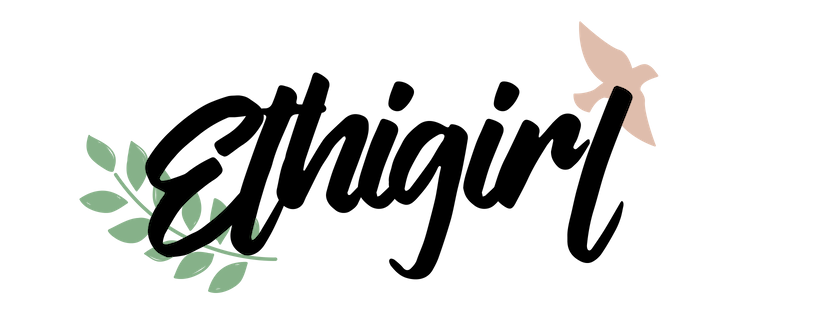My name is Aspen, and the words “ethical consumerism” have changed the course of my activism, my career goals, and my life.Since I can remember, I’ve been hell-bent on helping others. I love volunteering and used to think I would someday end up working on the frontlines of humanitarian crisis for the UN. I’m not sure what it was about my upbringing or my nature that made me so passionate about it, but here we are: it’s who I am.But for a long time I didn’t understand the difference between charity and empowerment when it comes to international development, and I didn’t realize how this “help” I’d been so passionate about offering could actually hurt. I thought that I, a teenage girl from the west, would be best suited to spend thousands of dollars travelling to a developing community to use my non-existent skills to build schools or houses for those living there.As I got a bit more educated, I realized the importance of NOT doing that, but instead supporting the people who actually live there to learn the skills to build those schools themselves. Just because of my privilege, which allows me to live in a more developed part of the world, I am not more capable of aiding those living in a part of the world that is still developing. When my eyes were opened to that, my entire view on what I wanted to do with my life shifted. It didn’t happen all at once; in fact, for a little while, I had no idea where I was going with...well, everything. I knew for a fact that I would study international development, but I had no idea what I wanted to specialize in or what I cared most about or what I’d be good at. I remember clearly standing in the orientation of my TD Scholarships for Community Leadership conference, hearing the words “what are you passionate about?” and quite literally having no idea what to do or to say.And then comes part two of this story: Aspen makes the connection between purchases and activism. I can’t remember the exact moment or reason it happened, but it did: I realized that I was speaking about and fundraising for important causes at school and shopping at stores like H&M on the weekends. Why was I doing that? We all are aware to some degree of the way our clothing - and almost all our other products - are produced, so why don’t we think about it more? I knew then that there had to be a better way to be a consumer. Could you buy things in an ethical, eco-friendly manner? I learned about Fair Trade and knew that, although the sheer amount and level of production that happens makes it hard to be 100% sustainable, there was a better way. And I believe that Fair Trade is it.I’ve always loved fashion and thought that the way I dressed was important, because it said something about who I was. For that reason, I’ve always tried to wear and to buy things that were unique. Well, now, the clothes I buy are important beyond words to me: and more important than the way they look is the way they get produced. I ask myself so many questions, and many look like this:
Did someone work harder or longer than is acceptable for me to buy this?
Is this selling for too cheap to afford someone a fair wage - one that can support their family?
Is this item made with materials or dyes which are known to be bad for the earth?
Does the company which I want to buy this from boast openly and proudly about their ethics and sustainable practices?
Have they earned some sort of certification that backs this all up?
The more I have learned, the more passionate I have become. I now feel like I know that this is what I’m going to dedicate my life to. And I’m only learning more each and every day. Therefore, this is why I’ve created ETHIGIRL: not to brag, or to say that I am better than anyone else, but simply to write about my experiences along this path, and to be a resource for others who might want to embark upon the journey of ethical consumerism as well.I would love for you to join me, and I can’t wait to see where this all goes.With love and sustainability,Aspen





